Shakespeare on Film
William Shakespeare, one of the most famous writers ever to have lived and the bane to school children the world over. Born in 1564 and dying in 1616, Shakespeare produced 38 plays and 154 sonnets. From comedies, to tragedies, to histories, many of his plays are known the world over and with a new adaptation of
Macbeth starring Michael Fassbender coming out, lets us look at how the Bard's work has translated onto the screen.
One of the biggest clichés about Shakespeare is he would have been one of the most prolific screenwriters in the world if he were alive today. According to IMDB, there are 1,088 movies, TV programmes, films and short films to his name with 19 in production and he is in the Guinness Book of World Records as the most adapted writer with 410 feature length adaptations attributed to him. A two minute French adaptation of
Hamlet,
Le Duel d’Hamlet, starring Sarah Bernhardt is considered to be the oldest known Shakespeare film adaptation. The short adapted the duel on screen between Hamlet and Laertes with Bernhardt as Hamlet. The film was considered to be one of the earliest attempts to be a sound film; the actors pre-recorded their lines and it was played over the moving images, but copies now are silent. You can watch the short on
YouTube.
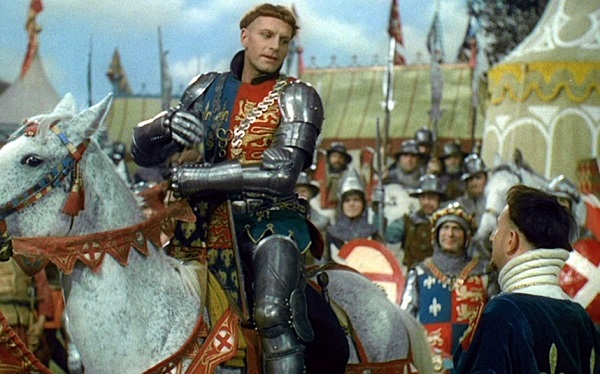
Though there were Shakespeare adaptations during the silent era and in the 1930s, 1944’s
Henry V was considered to be the first financially and artistically successful.
The Chronicle History of King Henry the Fifth with His Battell Fought at Agincourt in France was the great Laurence Olivier’s directional debut; he also starred as the famous king. This adaptation was actually a piece of war propaganda, partly funded by the British government as a morale booster, celebrating how the English army, outnumbered three to one defied the odds and defeated the French at the Battle of Agincourt. It was the most expensive British movie at the time, costing $2 Million. One of the notable features of the movie was its style, starting as a stage production at the Globe Theatre in 1600 and as the movie progresses, it turns to using a Medieval art style and eventually into a realistic setting. Olivier was clearly passionate for the movie and with his performance, but because this version of
Henry V was made as a piece of war propaganda, elements of the story that made Henry V less glamorous were cut, such as ordering the execution of French lords, hanging one of his own soldiers and the execution of three traitorous lords. Also, the movie played English claims to the French throne for comedy since it was irrelevant to a modern audience, but taken very seriously during Shakespeare's lifetime.
Adaptations of Shakespeare's plays picked up following the success of the 1944 version of
Henry V. Olivier directed and starred in two other highly regarded adaptations, 1948's
Hamlet and the 1955 version of
Richard III. Both are considered standout film versions of their respective plays and being some of Olivier's finest work as an actor and director;
Hamlet was the first British film to win an Academy Award for Best Picture and
Richard III had an iconic opening. Olivier also starred in a National Theatre Company production of
Othello in 1965 and it was a movie that garnered four Academy Award nominations for acting. But it was a movie that Olivier donned black-face for, playing a character who was written to be Moorish and the movie is not considered politically correct now.
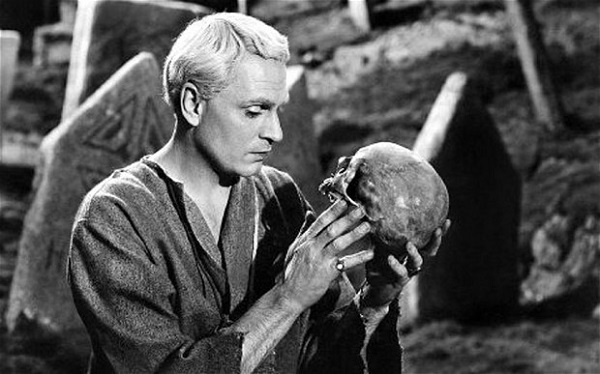
Big name directors Orson Welles and Roman Polanski also tackled works of the Bard, taking on the Scottish play,
Macbeth. Both were highly regarded adaptations, Welles' version taking liberties from the play by cutting some scenes and adding others, while the Polanski version was known for its dark, violent approach (it was the first movie he made after his wife was murdered). Welles also adapted
Othello and
Chimes at Midnight in 1952 and 1965 respectively; both were praised.
Othello took three years to film and won the Palme d'Or at the Cannes Film Festival and
Chimes at Midnight was a creative adaptation, focusing on the character of Falstaff and combined
Henry IV Part 1 and
Part 2,
Henry V and
Richard II.
Italian director Franco Zeffirelli was also a man who adapted multiple Shakespeare plays,
The Taming of the Shrew with Elizabeth Taylor and Richard Burton and the Mel Gibson led
Hamlet in 1990. His most famous adaptation is the 1968 version of
Romeo and Juliet, an adaptation that filmed in Verona and actually cast teenage actors in the famous roles. The movie is popular viewing in classrooms the world over.
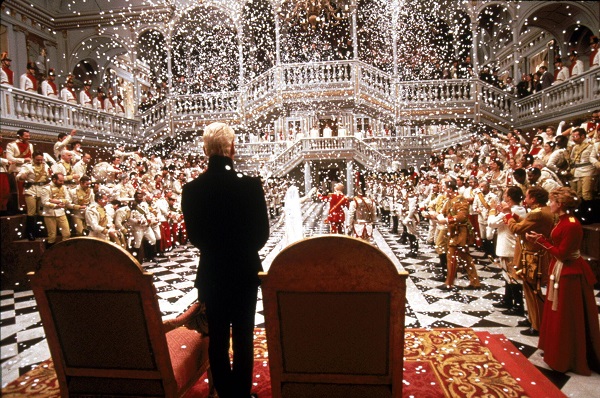
It was in the 1990s that saw a big explosion in the number of Shakespeare adaptations to screen. It all started with Kenneth Branagh, an actor and director who has been compared to Laurence Olivier. Like Olivier, Branagh's first movie as a director was an adaptation of
Henry V in 1989 and in my humble opinion, the better version, taking a more grounded, gritty look, embracing the muddy environments of Medieval Europe and took a more anti-war approach by showing the hardships and horrors of warfare. It was backed up by brilliant cinematography and Patrick Doyle's score. He followed
Henry V up with
Much Ado About Nothing and most famously his adaptation of
Hamlet: running at four hours long it is considered to be one of the best Shakespeare adaptations put to film and the most loyal adaptation possible of
Hamlet.
It was during the 90s when we saw a rise in modernized versions of Shakespeare plays. The most famous is Baz Luhrmann's adaptation of
Romeo + Juliet back in 1996. Luhrmann changed the setting from medieval Italy to a gang infested city, giving the movie a classic 90s soundtrack with bands like Radiohead, The Cardigans and Garbage and made 10 times its budget at the box budget. It was the movie that made Luhrmann's name as a director, helped propel Leonardo DiCaprio to stardom and popularized Shakespeare adaptations.
Romeo + Juliet was mostly loyal to the play, only changing the ending and for aficionados of the play and the life of Shakespeare, Luhrmann placed a lot of Easter Eggs to keep them satisfied. This version is also popular viewing for classrooms as anyone who studied in England can attest to; but the movie has been dubbed Shakespeare for the MTV generation.
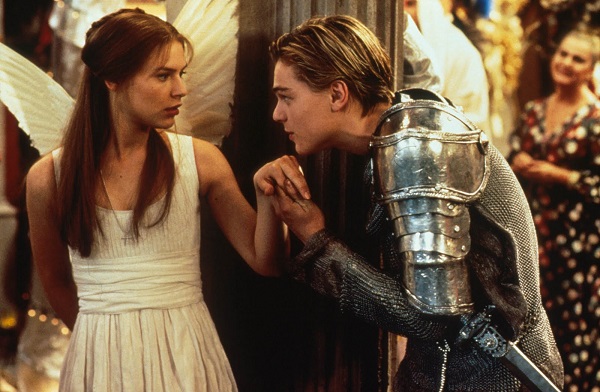
Other modernizations include Branagh's own
Hamlet and
Love's Labour's Lost, updating them to 19th century and 1930s respectively, the Ian McKellen led
Richard III in 1995 which took place in an alternative Fascist version of 1930s Britain and Ralph Fiennes made his directional debut with
Coriolanus, changing the setting from ancient Rome to modern day Balkans. But not all moderizations are a success. For instance, an Australian version of
Macbeth which translated the play to gangland Melbourne had a terrible reception and holds a 4.8 out of 10 rating on IMDB.
Shakespeare adaptations are just the domain of English language filmmakers and there have been excellent adaptations beyond the English speaking world. Two of best came from the great Japanese director Akira Kurosawa, adapting
Macbeth and
King Lear, translating them into Feudal Japan. Those movies were
Throne of Blood and
Ran and both are considered some of his finest works, standing along with movies like
Rashomon,
Seven Samurai and
Yojimbo. Though
Throne of Blood does take some liberties from its source material, it is tonally very loyal to
Macbeth, being a character drama about the corruption of General Washizu who lead by his wife to usurp power, the decay the land suffers because of Washizu's breaking the great chain of being and Washizu and his wife's descent into madness.
Ran was a grand epic of a movie, filled with grand costumes, battle scenes, including the brilliant attack on the castle and familial drama as they battle for control of the land.
There have also been loose adaptations of Shakespeare, taking his stories, but changing their setting or the dialogue. The musical
West Side Story is
Romeo and Juliet , setting the story in New York in the middle of a gang war between a white gang and a Puerto Rican one. The teen comedy
10 Things I Hate About You is a reimagining of
The Taming of the Shrew and 2001's
O placed the story of
Othello into an elite high school's basketball team. Disney's classic
The Lion King has been claimed to be influenced by
Hamlet, the story of an uncle usurping the throne by killing his brother and the young prince has to reclaim his rightful place.
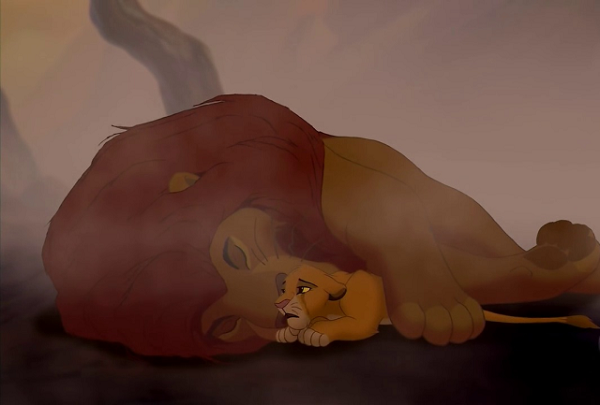
As well as his plays being adapted, Shakespeare has appeared in 151 movie TV programmes as a character, ranging from comedies like
Sabrina the Teenage Witch and zombie Shakespeare in
The Simpsons and an appearance in
Doctor Who. Some of the most famous appearances on film are Joseph Fiennes in the Oscar winning movie
Shakespeare in Love, being inspired to write
Romeo and Juliet when he finds love and the Roland Emmerich
Anonymous based on the flawed authorship question, turning Shakespeare into a front-man for the Earl of Oxford, making him out to be an drunk actor who can read but not write. Colin Firth also played Shakespeare in
Blackadder: Back and Forth, getting punched in the face for all the suffering he has caused schoolchildren over the next 400 years.
The latest Shakespeare adaptation, the Michael Fassbender-led version
Macbeth has earned a lot of critical praise, having a 95% rating on Rotten Tomatoes at time of writing this article and was nominated for the Palme d'Or at the 2015 Cannes Film Festival. Filmmakers and actors will always be attached to the work of the Bard; they often study his work at film-school or acting-school and his plays have obviously stood the test of time and his many fantastic elements in his plays make them are so appealing. In the near future we are getting a second series of
The Hollow Crown by the BBC, adapting
Henry VI Part I,
Part II and
Part III and
Richard III having cast members like Benedict Cumberbatch, Sophie Okonedo, Hugh Bonneville and Sally Hawkins and there are plenty of other adaptations on the way like a Russell T. Davies scripted version of
A Midsummer Night's Dream and a new adaptation of
Hamlet and another adaptation of
Macbeth are coming.
 Though there were Shakespeare adaptations during the silent era and in the 1930s, 1944’s Henry V was considered to be the first financially and artistically successful. The Chronicle History of King Henry the Fifth with His Battell Fought at Agincourt in France was the great Laurence Olivier’s directional debut; he also starred as the famous king. This adaptation was actually a piece of war propaganda, partly funded by the British government as a morale booster, celebrating how the English army, outnumbered three to one defied the odds and defeated the French at the Battle of Agincourt. It was the most expensive British movie at the time, costing $2 Million. One of the notable features of the movie was its style, starting as a stage production at the Globe Theatre in 1600 and as the movie progresses, it turns to using a Medieval art style and eventually into a realistic setting. Olivier was clearly passionate for the movie and with his performance, but because this version of Henry V was made as a piece of war propaganda, elements of the story that made Henry V less glamorous were cut, such as ordering the execution of French lords, hanging one of his own soldiers and the execution of three traitorous lords. Also, the movie played English claims to the French throne for comedy since it was irrelevant to a modern audience, but taken very seriously during Shakespeare's lifetime.
Adaptations of Shakespeare's plays picked up following the success of the 1944 version of Henry V. Olivier directed and starred in two other highly regarded adaptations, 1948's Hamlet and the 1955 version of Richard III. Both are considered standout film versions of their respective plays and being some of Olivier's finest work as an actor and director; Hamlet was the first British film to win an Academy Award for Best Picture and Richard III had an iconic opening. Olivier also starred in a National Theatre Company production of Othello in 1965 and it was a movie that garnered four Academy Award nominations for acting. But it was a movie that Olivier donned black-face for, playing a character who was written to be Moorish and the movie is not considered politically correct now.
Though there were Shakespeare adaptations during the silent era and in the 1930s, 1944’s Henry V was considered to be the first financially and artistically successful. The Chronicle History of King Henry the Fifth with His Battell Fought at Agincourt in France was the great Laurence Olivier’s directional debut; he also starred as the famous king. This adaptation was actually a piece of war propaganda, partly funded by the British government as a morale booster, celebrating how the English army, outnumbered three to one defied the odds and defeated the French at the Battle of Agincourt. It was the most expensive British movie at the time, costing $2 Million. One of the notable features of the movie was its style, starting as a stage production at the Globe Theatre in 1600 and as the movie progresses, it turns to using a Medieval art style and eventually into a realistic setting. Olivier was clearly passionate for the movie and with his performance, but because this version of Henry V was made as a piece of war propaganda, elements of the story that made Henry V less glamorous were cut, such as ordering the execution of French lords, hanging one of his own soldiers and the execution of three traitorous lords. Also, the movie played English claims to the French throne for comedy since it was irrelevant to a modern audience, but taken very seriously during Shakespeare's lifetime.
Adaptations of Shakespeare's plays picked up following the success of the 1944 version of Henry V. Olivier directed and starred in two other highly regarded adaptations, 1948's Hamlet and the 1955 version of Richard III. Both are considered standout film versions of their respective plays and being some of Olivier's finest work as an actor and director; Hamlet was the first British film to win an Academy Award for Best Picture and Richard III had an iconic opening. Olivier also starred in a National Theatre Company production of Othello in 1965 and it was a movie that garnered four Academy Award nominations for acting. But it was a movie that Olivier donned black-face for, playing a character who was written to be Moorish and the movie is not considered politically correct now.
 Big name directors Orson Welles and Roman Polanski also tackled works of the Bard, taking on the Scottish play, Macbeth. Both were highly regarded adaptations, Welles' version taking liberties from the play by cutting some scenes and adding others, while the Polanski version was known for its dark, violent approach (it was the first movie he made after his wife was murdered). Welles also adapted Othello and Chimes at Midnight in 1952 and 1965 respectively; both were praised. Othello took three years to film and won the Palme d'Or at the Cannes Film Festival and Chimes at Midnight was a creative adaptation, focusing on the character of Falstaff and combined Henry IV Part 1 and Part 2, Henry V and Richard II.
Italian director Franco Zeffirelli was also a man who adapted multiple Shakespeare plays, The Taming of the Shrew with Elizabeth Taylor and Richard Burton and the Mel Gibson led Hamlet in 1990. His most famous adaptation is the 1968 version of Romeo and Juliet, an adaptation that filmed in Verona and actually cast teenage actors in the famous roles. The movie is popular viewing in classrooms the world over.
Big name directors Orson Welles and Roman Polanski also tackled works of the Bard, taking on the Scottish play, Macbeth. Both were highly regarded adaptations, Welles' version taking liberties from the play by cutting some scenes and adding others, while the Polanski version was known for its dark, violent approach (it was the first movie he made after his wife was murdered). Welles also adapted Othello and Chimes at Midnight in 1952 and 1965 respectively; both were praised. Othello took three years to film and won the Palme d'Or at the Cannes Film Festival and Chimes at Midnight was a creative adaptation, focusing on the character of Falstaff and combined Henry IV Part 1 and Part 2, Henry V and Richard II.
Italian director Franco Zeffirelli was also a man who adapted multiple Shakespeare plays, The Taming of the Shrew with Elizabeth Taylor and Richard Burton and the Mel Gibson led Hamlet in 1990. His most famous adaptation is the 1968 version of Romeo and Juliet, an adaptation that filmed in Verona and actually cast teenage actors in the famous roles. The movie is popular viewing in classrooms the world over.
 It was in the 1990s that saw a big explosion in the number of Shakespeare adaptations to screen. It all started with Kenneth Branagh, an actor and director who has been compared to Laurence Olivier. Like Olivier, Branagh's first movie as a director was an adaptation of Henry V in 1989 and in my humble opinion, the better version, taking a more grounded, gritty look, embracing the muddy environments of Medieval Europe and took a more anti-war approach by showing the hardships and horrors of warfare. It was backed up by brilliant cinematography and Patrick Doyle's score. He followed Henry V up with Much Ado About Nothing and most famously his adaptation of Hamlet: running at four hours long it is considered to be one of the best Shakespeare adaptations put to film and the most loyal adaptation possible of Hamlet.
It was during the 90s when we saw a rise in modernized versions of Shakespeare plays. The most famous is Baz Luhrmann's adaptation of Romeo + Juliet back in 1996. Luhrmann changed the setting from medieval Italy to a gang infested city, giving the movie a classic 90s soundtrack with bands like Radiohead, The Cardigans and Garbage and made 10 times its budget at the box budget. It was the movie that made Luhrmann's name as a director, helped propel Leonardo DiCaprio to stardom and popularized Shakespeare adaptations. Romeo + Juliet was mostly loyal to the play, only changing the ending and for aficionados of the play and the life of Shakespeare, Luhrmann placed a lot of Easter Eggs to keep them satisfied. This version is also popular viewing for classrooms as anyone who studied in England can attest to; but the movie has been dubbed Shakespeare for the MTV generation.
It was in the 1990s that saw a big explosion in the number of Shakespeare adaptations to screen. It all started with Kenneth Branagh, an actor and director who has been compared to Laurence Olivier. Like Olivier, Branagh's first movie as a director was an adaptation of Henry V in 1989 and in my humble opinion, the better version, taking a more grounded, gritty look, embracing the muddy environments of Medieval Europe and took a more anti-war approach by showing the hardships and horrors of warfare. It was backed up by brilliant cinematography and Patrick Doyle's score. He followed Henry V up with Much Ado About Nothing and most famously his adaptation of Hamlet: running at four hours long it is considered to be one of the best Shakespeare adaptations put to film and the most loyal adaptation possible of Hamlet.
It was during the 90s when we saw a rise in modernized versions of Shakespeare plays. The most famous is Baz Luhrmann's adaptation of Romeo + Juliet back in 1996. Luhrmann changed the setting from medieval Italy to a gang infested city, giving the movie a classic 90s soundtrack with bands like Radiohead, The Cardigans and Garbage and made 10 times its budget at the box budget. It was the movie that made Luhrmann's name as a director, helped propel Leonardo DiCaprio to stardom and popularized Shakespeare adaptations. Romeo + Juliet was mostly loyal to the play, only changing the ending and for aficionados of the play and the life of Shakespeare, Luhrmann placed a lot of Easter Eggs to keep them satisfied. This version is also popular viewing for classrooms as anyone who studied in England can attest to; but the movie has been dubbed Shakespeare for the MTV generation.
 Other modernizations include Branagh's own Hamlet and Love's Labour's Lost, updating them to 19th century and 1930s respectively, the Ian McKellen led Richard III in 1995 which took place in an alternative Fascist version of 1930s Britain and Ralph Fiennes made his directional debut with Coriolanus, changing the setting from ancient Rome to modern day Balkans. But not all moderizations are a success. For instance, an Australian version of Macbeth which translated the play to gangland Melbourne had a terrible reception and holds a 4.8 out of 10 rating on IMDB.
Shakespeare adaptations are just the domain of English language filmmakers and there have been excellent adaptations beyond the English speaking world. Two of best came from the great Japanese director Akira Kurosawa, adapting Macbeth and King Lear, translating them into Feudal Japan. Those movies were Throne of Blood and Ran and both are considered some of his finest works, standing along with movies like Rashomon, Seven Samurai and Yojimbo. Though Throne of Blood does take some liberties from its source material, it is tonally very loyal to Macbeth, being a character drama about the corruption of General Washizu who lead by his wife to usurp power, the decay the land suffers because of Washizu's breaking the great chain of being and Washizu and his wife's descent into madness. Ran was a grand epic of a movie, filled with grand costumes, battle scenes, including the brilliant attack on the castle and familial drama as they battle for control of the land.
There have also been loose adaptations of Shakespeare, taking his stories, but changing their setting or the dialogue. The musical West Side Story is Romeo and Juliet , setting the story in New York in the middle of a gang war between a white gang and a Puerto Rican one. The teen comedy 10 Things I Hate About You is a reimagining of The Taming of the Shrew and 2001's O placed the story of Othello into an elite high school's basketball team. Disney's classic The Lion King has been claimed to be influenced by Hamlet, the story of an uncle usurping the throne by killing his brother and the young prince has to reclaim his rightful place.
Other modernizations include Branagh's own Hamlet and Love's Labour's Lost, updating them to 19th century and 1930s respectively, the Ian McKellen led Richard III in 1995 which took place in an alternative Fascist version of 1930s Britain and Ralph Fiennes made his directional debut with Coriolanus, changing the setting from ancient Rome to modern day Balkans. But not all moderizations are a success. For instance, an Australian version of Macbeth which translated the play to gangland Melbourne had a terrible reception and holds a 4.8 out of 10 rating on IMDB.
Shakespeare adaptations are just the domain of English language filmmakers and there have been excellent adaptations beyond the English speaking world. Two of best came from the great Japanese director Akira Kurosawa, adapting Macbeth and King Lear, translating them into Feudal Japan. Those movies were Throne of Blood and Ran and both are considered some of his finest works, standing along with movies like Rashomon, Seven Samurai and Yojimbo. Though Throne of Blood does take some liberties from its source material, it is tonally very loyal to Macbeth, being a character drama about the corruption of General Washizu who lead by his wife to usurp power, the decay the land suffers because of Washizu's breaking the great chain of being and Washizu and his wife's descent into madness. Ran was a grand epic of a movie, filled with grand costumes, battle scenes, including the brilliant attack on the castle and familial drama as they battle for control of the land.
There have also been loose adaptations of Shakespeare, taking his stories, but changing their setting or the dialogue. The musical West Side Story is Romeo and Juliet , setting the story in New York in the middle of a gang war between a white gang and a Puerto Rican one. The teen comedy 10 Things I Hate About You is a reimagining of The Taming of the Shrew and 2001's O placed the story of Othello into an elite high school's basketball team. Disney's classic The Lion King has been claimed to be influenced by Hamlet, the story of an uncle usurping the throne by killing his brother and the young prince has to reclaim his rightful place.
 As well as his plays being adapted, Shakespeare has appeared in 151 movie TV programmes as a character, ranging from comedies like Sabrina the Teenage Witch and zombie Shakespeare in The Simpsons and an appearance in Doctor Who. Some of the most famous appearances on film are Joseph Fiennes in the Oscar winning movie Shakespeare in Love, being inspired to write Romeo and Juliet when he finds love and the Roland Emmerich Anonymous based on the flawed authorship question, turning Shakespeare into a front-man for the Earl of Oxford, making him out to be an drunk actor who can read but not write. Colin Firth also played Shakespeare in Blackadder: Back and Forth, getting punched in the face for all the suffering he has caused schoolchildren over the next 400 years.
The latest Shakespeare adaptation, the Michael Fassbender-led version Macbeth has earned a lot of critical praise, having a 95% rating on Rotten Tomatoes at time of writing this article and was nominated for the Palme d'Or at the 2015 Cannes Film Festival. Filmmakers and actors will always be attached to the work of the Bard; they often study his work at film-school or acting-school and his plays have obviously stood the test of time and his many fantastic elements in his plays make them are so appealing. In the near future we are getting a second series of The Hollow Crown by the BBC, adapting Henry VI Part I, Part II and Part III and Richard III having cast members like Benedict Cumberbatch, Sophie Okonedo, Hugh Bonneville and Sally Hawkins and there are plenty of other adaptations on the way like a Russell T. Davies scripted version of A Midsummer Night's Dream and a new adaptation of Hamlet and another adaptation of Macbeth are coming.
As well as his plays being adapted, Shakespeare has appeared in 151 movie TV programmes as a character, ranging from comedies like Sabrina the Teenage Witch and zombie Shakespeare in The Simpsons and an appearance in Doctor Who. Some of the most famous appearances on film are Joseph Fiennes in the Oscar winning movie Shakespeare in Love, being inspired to write Romeo and Juliet when he finds love and the Roland Emmerich Anonymous based on the flawed authorship question, turning Shakespeare into a front-man for the Earl of Oxford, making him out to be an drunk actor who can read but not write. Colin Firth also played Shakespeare in Blackadder: Back and Forth, getting punched in the face for all the suffering he has caused schoolchildren over the next 400 years.
The latest Shakespeare adaptation, the Michael Fassbender-led version Macbeth has earned a lot of critical praise, having a 95% rating on Rotten Tomatoes at time of writing this article and was nominated for the Palme d'Or at the 2015 Cannes Film Festival. Filmmakers and actors will always be attached to the work of the Bard; they often study his work at film-school or acting-school and his plays have obviously stood the test of time and his many fantastic elements in his plays make them are so appealing. In the near future we are getting a second series of The Hollow Crown by the BBC, adapting Henry VI Part I, Part II and Part III and Richard III having cast members like Benedict Cumberbatch, Sophie Okonedo, Hugh Bonneville and Sally Hawkins and there are plenty of other adaptations on the way like a Russell T. Davies scripted version of A Midsummer Night's Dream and a new adaptation of Hamlet and another adaptation of Macbeth are coming.